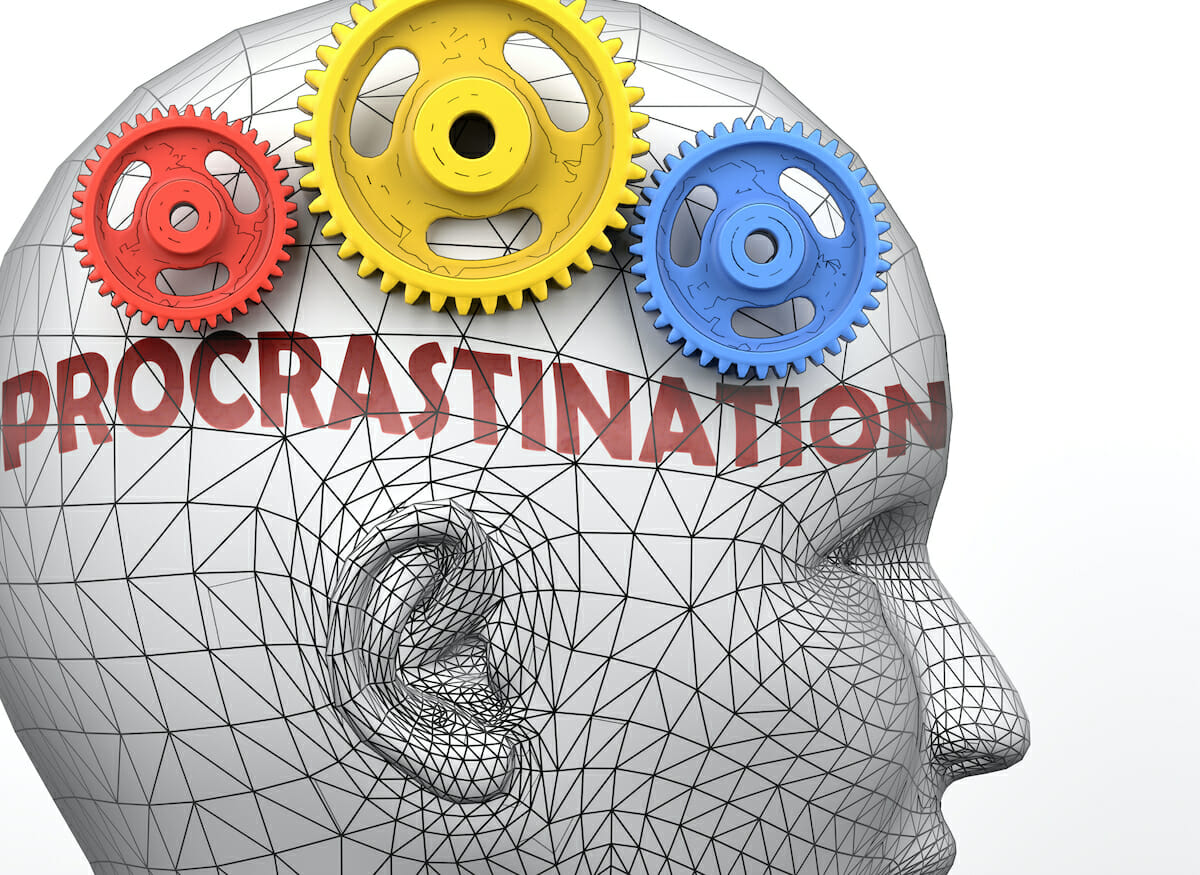Many people procrastinate, some of us chronically, but why do we do that? Is there a way to counteract procrastination, and does this habit ever bring benefits?
Everyone procrastinates at some point in their lives. Whether it relates to paying a bill, making a doctor’s appointment, completing a school project, or meeting a work deadline, it is sometimes easier to put off important tasks we may not fully enjoy and would rather accomplish some other time.
While for most people the act of procrastination may only happen every so often, for others it becomes a constant occurrence. An estimated 20% of adults in the United States are chronic procrastinators, even though research shows that high levels of procrastination in the workplace can have negative effects on employment duration and income.
Why do more people procrastinate than others? Is procrastination a mental health condition? And does procrastinating offer any positives or is it just a negative habit we need to kick?
Procrastination results from a struggle between a person’s limbic system and prefrontal cortex of the brain. There is a study showing that people who often procrastinate have a larger amygdala—the part of the brain responsible for emotions, particularly negative ones. The study authors also found that procrastinators have a less functional connection with the dorsal anterior cingulate cortex—a part of the brain that assimilates information and is implicated in decision-making. This study highlights that procrastination is not so cut-and-dry and does not occur in just one region of the brain.”
Anxiety and procrastination
Other issues a person may be facing can impact how procrastination affects the brain.
“In the case of anxiety disorders, a person may become paralyzed with much activity in the amygdala—fear, despair, perfectionism, or ‘paralysis by analysis’. With depression, processing information may become too slow when patients feel helpless or indecisive,” says Dr. Alex Wills, a board-certified psychiatrist and author of Give a F*ck, Actually.
Dr. Wills continues, “[And] in the case of ADHD, there may be a neurological lack of cognitive focus due to a lack of dopamine sent to the prefrontal cortex in which the person may subjectively simply become innocently unaware of a looming deadline—until it’s too late.”
Is procrastination a mental health issue?
Procrastination itself is not a mental health condition. However, it can be problematic behavior if it becomes routine and causes distress.
Procrastination is often thought of as a symptom commonly found in various disorders:
“Under the anxiety spectrum, it is often found in OCPD [obsessive-compulsive personality disorder], OCD, hoarding, or PTSD [post-traumatic stress disorder] due to fears related to past trauma. In ADHD, which can be considered more of a neurological or ‘wiring’ condition, procrastination may be a result of an inability to prioritize, stay on task, or stay focused,” says Dr. Wills.
Dr. Wills added, “Procrastination may also be an indicator of addictive tendencies—the high of ‘saving the day’ from calamity by finishing an important task just before the deadline. Whether someone does it all the time or not may be an indicator of one of these underlying mental health conditions.”
Are there any benefits to procrastination?
Generally speaking, most people consider procrastination a negative habit. However, are there any positives to it?
There are many cases when procrastination can be beneficial, even when the person does not intend for it to be.
Everyone can relate to procrastinating on a task because it is low impact or low value, which shows good judgment about time management and task prioritization. Perhaps it’s ultimately better for your mental health if you go play that game of tennis or take a long walk instead of getting that project done on your list. Furthermore, you might come back to that project with more energy and new insights because you stepped away to do something else.
Some people work better under pressure and perform best when they have a strict deadline, even if they didn’t intend to wait until the last minute.
How to stop procrastinating
For those who wish to stop procrastinating, it’s suggested “rolling the tape” when you notice yourself starting to head into the procrastination mode.
Basically, you visually image in your mind what it will feel like doing the task last minute including the stress, exhaustion, and the possibility of not completing it in time or handing in a subpar product. For some people, this negative visualization can be enough to help them start the task. Some people also benefit from enlisting others to hold them accountable to complete each small step. Split things up into manageable chunks and do them over time. For example, instead of cleaning your whole house, which can feel overwhelming, just commit to cleaning the sink today and the floors tomorrow. Oftentimes when you get started on a subtask, it also makes it much easier to complete the whole thing because you prove to yourself that the task you put off isn’t really as bad as you made it out to be in your head.
Setting deadlines can be a helpful tool against procrastination when set correctly. Previous research shows that for tasks that benefit you—the longer the deadline, the lower the response rate—meaning no deadline leads to the lowest response.
It is suggested people who tend to procrastinate should set shorter deadlines rather than longer ones.
Also, giving yourself a reward after completing each step can be helpful.
Source: Adapted from the article: https://www.medicalnewstoday.com/articles/why-do-we-procrastinate-experts-explain-the-science








